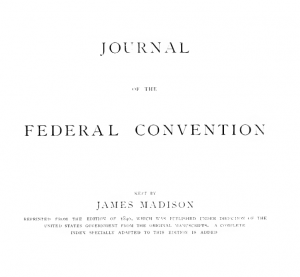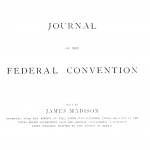What do Illinois Family Institute’s Laurie Higgins, National Review’s David French, fellow Patheos blogger Hemant Mehta (The Friendly Atheist) and I have in common?
We all believe Bernie Sanders was out of line to say he will vote against Trump’s Office of Management and Budget Deputy Director nominee Russ Vought because of Vought’s religious beliefs.
Mehta has gone out on a limb with his readers to take this position, but I believe it is the right one. Article Six of the Constitution states in part:
The Senators and Representatives before mentioned, and the Members of the several State Legislatures, and all executive and judicial Officers, both of the United States and of the several States, shall be bound by Oath or Affirmation, to support this Constitution; but no religious Test shall ever be required as a Qualification to any Office or public Trust under the United States.
While Sanders may be disgusted by Vought’s religious beliefs, Sanders may not use those beliefs as a test for Vought’s service as an officer of the federal government. As Mehta said in his column (I urge you to read it, it may challenge your views about atheists), Sanders could have taken a different and appropriate approach:
The question Sanders should’ve asked is whether Vought’s beliefs about non-Christian people would ever influence his treatment of them under the law. Would he treat Muslims (or LGBT people, for that matter) the same way he treats Christians?
I want to know that as well. One of my concerns about dominionist Christians (not saying Vought is, I don’t know) getting into power is that they might favor Christians over others, using a Christian religious test. Perhaps Sanders inappropriate actions can serve as a caution to Christian politicians to consider the Golden Rule in choosing public servants – If you don’t like it when a religious test is used on your in-group, then don’t use one on members of out-groups.
No Religious Test
As far as I can tell, the “no religious test” clause was first suggested by Charles Pinckney, delegate from South Carolina to the Constitutional Convention. On May 29, 1787, Pinckney laid his plan before the Convention where it was sent to committee. Then much later on August 20, Pinckney was able to bring it to the floor. The religious test portion said:
No religious test or qualification shall ever be annexed to any oath of office, under the authority of the United States.
In his defense of the plan, Pinckney wrote:
The next Article l provides for the privilege of the Writ of Habeas Corpus — the Trial by Jury in all cases, Criminal as well as Civil — the Freedom of the Press, and the prevention of Religious Tests, as qualifications to Offices of Trust or Emolument: The three first essential in Free Governments; the last, a provision the world will expect from you, in the establishment of a System founded on Republican Principles, and in an age so liberal and enlightened as the present. (p. 122)
Note that Pinckney believed that a “liberal and enlightened” age required freedom from religious test.
Some might question whether or not we live in an enlightened age. However, it is refreshing when agreement can be found across ideological lines and that agreement is based on the foundational principles of the Republic.
1787 Constitutional Convention Series
To read my series examining the proceedings of the Constitution Convention, click here. In this series, I am writing about any obvious influences on the development of the Constitution which were mentioned by the delegates to the Convention. Specifically, I am testing David Barton’s claim that “every clause” of the Constitution is based on biblical principles. Thus far, I have found nothing supporting the claim. However, stay tuned, the series will run until mid-September.
Constitutional Convention Series (click the link)
To follow on social media, click the following links:
Facebook (blog posts and news)
Facebook (Getting Jefferson Right – history news)
Twitter

